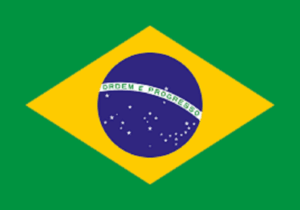The Volokh Conspiracy
Mostly law professors | Sometimes contrarian | Often libertarian | Always independent
Trump's Plan to Impose 50% Tariffs on Brazil Highlights Illegal and Harmful Nature of his Trade Policy
It's an obvious abuse of emergency powers, a claim to unconstitutional delegation of legislative power, and a threat to the economy and the rule of law.

Earlier today, President Donald Trump announced he intends to impose 50% tariffs on imports from Brazil, citing that country's prosecution of former President Jair Bolsonaro, for the latter's attempt to stage a coup to keep himself in power after losing an election. Bolsonaro is a political ally of Trump's. The incident highlights the illegal and dangerous nature of Trump's tariff policy.
The administration has not made clear what law they will use to impose the Brazil tariffs. But reporters tell me officials have indicated Trump will use the International Emergency Economic Powers Act of 1977 (IEEPA), which is also the statute at issue in the lawsuit against Trump's "Liberation Day" tariffs, filed by the Liberty Justice Center and myself, on behalf of five small businesses harmed by this massive trade war.
The Brazil situation exemplifies why Trump's use of IEEPA is illegal and harmful. Brazil's prosecution of Bolsonaro is pretty obviously not an "emergency" or an "unusual and extraordinary threat" to the US economy or national security. Both of these conditions are required to invoke IEEPA. This situation just underscores the danger of allowing the president to define those terms however he wants, without any judicial review, as the administration claims he can.
The ostensible rationale for the Liberation Day tariffs is trade deficits, despite the fact that such deficits are not an "emergency," not at all "extraordinary" or "unusual," or even a threat at all. On these points, see the excellent amicus brief in our case filed by leading economists across the political spectrum.
The Brazil tariffs are even more indefensible than Trump's other IEEPA tariffs. In addition to the Bolsonaro prosecution, Trump's letter announcing the new tariffs cites that country's supposedly unfair trade policies. But the US actually has a substantial trade surplus with Brazil, of some $7.4 billion per year, according to the office of the US Trade Representative. In combination with Brazil's retaliatory tariffs, Trump's massive new tariffs against that country will predictably harm consumers and businesses in both countries, for little if any gain.
If the president can use IEEPA to impose tariffs for completely ridiculous reasons like these, he can use it to impose them against any nation for any reason. That reinforces our argument that the administration's interpretation of IEEPA leads to a boundless and unconstitutional delegation of legislative power to the executive. A unanimous ruling in our favor by the US Court of International Trade concluded that IEEPA "does not authorize the President to impose unbounded tariffs" and that such "an unlimited delegation of tariff authority would constitute an improper abdication of legislative power to another branch of government." I hope appellate courts will reach the same conclusions.
The president's attempt to use tariff policy to punish Brazil for prosecuting one of his political allies underscores the threat that unlimited executive tariff authority poses to the rule of law. Tariff policy - like other significant economic policies - should be based on clear, stable rules that do not vary based on the whims of any one person, and cannot be used to punish the president's political enemies or reward his allies. Trump's tariff power grab is a huge step towards replacing the rule of law in trade policy with the unilateral rule of one man. That's yet another reason why courts should strike it down.


Show Comments (51)